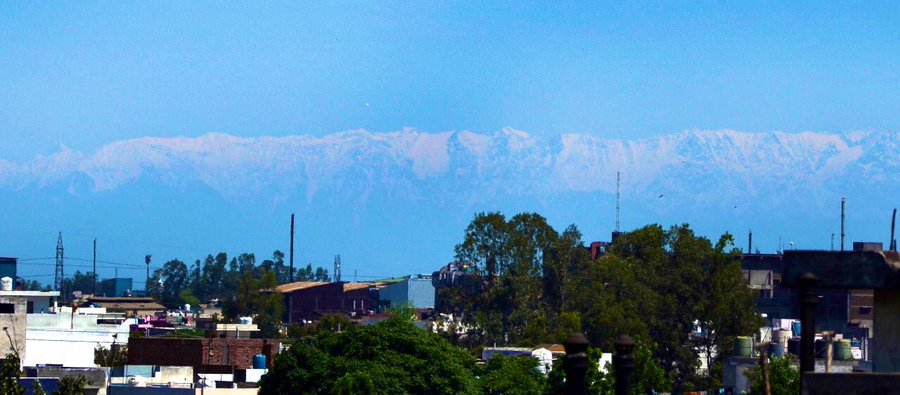The recent CORONA outbreak is presently posing as one of the largest epidemic illness hovering over the World. Due to this recent outbreak of this epidemic, the World has come to a standstill. The never stopping life on the Earth has been stopped abruptly. As we all know, Nature always find its way. In this current Corona Outbreak, the nature has discovered its method to assist heel itself. With the onset of this epidemic illness all around the world, the nature has began healing itself at a really quick tempo.
As this COVID-19 situation is proving to be out of the human reach, the only preventive measure for this disease is to maintain social distancing. As this disease is a communicable disease, it is spreading very rapidly from individual to individual. To prevent this contamination chain, the World Health Organisation (WHO) has declared maintain social distancing as the only possible measure to prevent the spread of the disease.
Following the WHOs advisory, affected countries over the world have adopted social distancing for preventing their people form this infection. The World is currently undergoing a total lockdown mode. The World has been on the shutdown mode since this COVID-19 outbreak. The World’s lockdown is been proving as a boon for the deteriorating environmental conditions of the World.
EFFECTS ON AIR QUALITY
Countries have imposed stricter restrictions on the movement of modes of transportation causing a drastic decrease in the pollution level in the atmosphere. The streets are empty with more people inside their houses. As per the NASA report, the air pollution levels have been decreased drastically since the COVID-19 outbreak. Since the factories, industries, and all the workplaces are on the shutdown mode, the CO2 and CO emission levels have also been reduced. According to the World Air Quality, the average concentration of PM 2.5 in New Delhi came down by 71 percent.
As a result of decreased air pollution levels, the Himalayan ranges were clearly visible from the Jalandhar area. It is on of the rarest cases that happened to be in India. According to the native people, the incident has occurred after an enormous interval of 30 years. The distance of the Jalandhar city from the Dhauladhar ranges is approx. 200 km.

Image Source: Twitter
In another rare sighting due to decreased levels of AQI, the inner Himalayan peaks of Bandarpunch and Gangotri became visible from the town of Saharanpur in Uttar Pradesh

Image Source: Twitter@RameshPandeyIFS
EFFECT ON WATER QUALITY
The water transport movement, water activities has also been stopped resulting in the improvement of the water quality. The water in the well-known Venice lake has been marked completely clear. The huge reduction of tourist numbers and commuting workers in the city may also be leading to an improvement in the water quality due to a reduction of sewage discharges into the canals.
Many industries and offices are closed due to the lockdown these days and therefore the water quality of many rivers has improved. The stoppage of industrial pollution and industrial waste has undoubtedly had an optimistic impact on water quality. The water quality of river Ganga, in India, is also been marked as fit for drinking as per recent research by Indian scientists.
As several religious activities have decreased as the lockdown effect, the banks of river Ganga at Varanasi and Haridwar areas are comparatively clearer and cleaner than before.

The clear water of Ganga River at Haridwar, Uttarakhand (Image Source: PTI)

Images of Clearwater of Venice lake, Italy during the recent corona outbreak (image Source: https://www.cnbc.com/2020/03/18/photos-water-in-venice-italys-canals-clear-amid-covid-19-lockdown.html)
- The COVID-19 pandemic is also likely to have a significant impact on other environmental factors, including the emission of greenhouse gases as the global economy heads into recession.
- The quarantine protocols may also have a deep, but short-term, impact on greenhouse gas emissions and other pollutants, as fewer people are traveling and fewer businesses are operating.
As per the recent records, there is currently a total of 32,56,846 confirmed cases of COVID -19. The total number of people worldwide who have lost their lives is 2,33,388. The total number of recovered cases at present is 10,14,753.
Speaking of India’s context, a total of 35,043 are the total active cases with a total of 1,147 deaths across the country, A total of 8,889 cases have reportedly been cured of the disease.
(Data as on 01-05-2020)

She is a Conservation Biologist deeply concerned with the protection and sustainability of natural resources and wildlife. She is particularly interested in studying and addressing the loss of Biodiversity and educating the people about the same. She has a Master’s degree in Zoology with Post Graduate Diploma in Environment and Sustainable Development and another in Sustainability Sciences.
